Ignoring mold and water damage in your home can lead to severe long-term consequences. While the immediate effects may seem minor, such as a damp patch or a musty smell, the underlying damage can escalate into serious structural and health issues over time. Understanding these long-term effects is crucial for homeowners to take timely and effective action.
The Long-Term Effects of Ignoring Mold and Water Damage in Colorado
The Hidden Dangers of Water Damage
Water damage often starts small but can quickly become a significant problem if left untreated. The long-term effects of water damage include structural damage, electrical hazards, and mold growth. Water can weaken the structural integrity of your home by seeping into the walls, floors, and foundations, causing wood to rot, steel to rust, and concrete to weaken. This can lead to sagging floors, cracked walls, and even a compromised foundation, posing a risk of collapse. Additionally, water damage can affect the electrical wiring in your home, increasing the risk of electrical fires and shocks.
Moisture can corrode wires and create short circuits, putting your entire household at risk. One of the most insidious effects of water damage is mold growth. Mold thrives in damp, dark environments and can spread rapidly throughout your home, causing significant damage and posing serious health risks to you and your family.
Structural Damage
Structural damage is one of the most severe long-term effects of water damage. When water seeps into the structural elements of your home, such as walls, floors, and foundations, it can cause wood to rot, steel to rust, and concrete to weaken. Over time, this persistent moisture can compromise the integrity of these materials, leading to serious issues like sagging floors, warped walls, and cracked foundations.
In extreme cases, the structural damage can be so extensive that it poses a risk of collapse, endangering the safety of the occupants. Additionally, repairing structural damage is often costly and time-consuming, requiring extensive renovations to restore the home’s stability and safety. Ignoring early signs of water damage only exacerbates these issues, making timely intervention critical to preserving the structural integrity of your home.
Electrical Hazards
Water and electricity are a dangerous combination. Water damage can affect the electrical wiring in your home, increasing the risk of electrical fires and shocks. Moisture can corrode wires and create short circuits, putting your entire household at risk.
Mold Growth
Mold growth is one of the most insidious consequences of water damage, thriving in damp, dark environments created by persistent moisture. Once mold takes hold, it can spread rapidly throughout your home, damaging surfaces and compromising the indoor air quality. Mold spores are microscopic and can easily become airborne, leading to widespread contamination.
These spores can settle on any organic material, including wood, drywall, and carpet, causing them to deteriorate. Moreover, mold poses significant health risks to occupants, including respiratory problems, allergic reactions, and even chronic health conditions such as asthma and bronchitis.
Toxic molds, like black mold, can produce particularly hazardous mycotoxins, potentially causing severe neurological and immune system issues. The presence of mold affects the structural integrity of your home and creates an unhealthy living environment. Prompt and professional remediation is essential to eliminate mold and prevent its recurrence effectively.
The Health Risks of Mold
Mold poses significant health risks, particularly when exposure is prolonged. Mold spores, which are microscopic and easily become airborne, can be inhaled and lead to a range of health issues. Respiratory problems are common, with symptoms such as coughing, sneezing, and difficulty breathing.
For individuals with asthma or allergies, mold exposure can trigger severe attacks and exacerbate existing conditions, making daily life uncomfortable and potentially dangerous. Allergic reactions to mold can manifest as runny noses, itchy eyes, skin rashes, and sinus congestion, significantly impacting one’s quality of life.
Beyond these immediate symptoms, chronic exposure to mold can lead to more severe health problems like chronic sinusitis, bronchitis, and even fungal infections. Certain toxic molds, like black mold (Stachybotrys chartarum), can produce mycotoxins that pose additional health risks, including neurological issues and immune system suppression. Given these serious health implications, it is crucial to address mold problems promptly and thoroughly to ensure a safe and healthy living environment.
Respiratory Problems
Mold spores can irritate the respiratory system, leading to symptoms such as coughing, sneezing, and difficulty breathing. For individuals with asthma or allergies, mold exposure can trigger severe attacks and exacerbate existing conditions.
Allergic Reactions
Many people are allergic to mold spores, and exposure can cause symptoms like runny nose, itchy eyes, skin rashes, and sinus congestion. These allergic reactions can be persistent and debilitating, affecting overall quality of life.
Chronic Health Conditions
Prolonged mold exposure can lead to more severe health problems, such as chronic sinusitis, bronchitis, and even fungal infections. In extreme cases, toxic molds like black mold (Stachybotrys chartarum) can produce mycotoxins, which can cause neurological issues and immune system suppression.
Financial Implications
Ignoring mold and water damage can have substantial financial implications that increase over time. Initially, what might seem like a minor issue can escalate into significant and costly repairs. The longer water damage and mold are left untreated, the more extensive and expensive the restoration process becomes, often requiring major renovations to replace damaged structural elements, walls, and flooring. Additionally, unresolved mold and water damage can lead to a decrease in property value. Potential buyers are often wary of homes with a history of these issues, fearing the costs and health risks associated with them.
This can make your home more difficult to sell and reduce its market value. Furthermore, many homeowners’ insurance policies have specific clauses regarding water damage and mold. Delaying necessary repairs can lead to complications with insurance claims, and in some cases, insurance companies may deny coverage if they determine the damage resulted from neglect. Consequently, homeowners may be left to cover the entire cost of repairs out of pocket, leading to significant financial strain. Taking prompt action to address water damage and mold is crucial to mitigate these financial risks and protect your investment.
Increased Repair Costs
The cost of repairing water damage and mold infestation increases exponentially over time. What might start as a simple fix can escalate into a major renovation project involving the replacement of walls, floors, and even structural elements.
Decreased Property Value
Homes with unresolved water damage and mold problems suffer from decreased property value. Potential buyers are often wary of purchasing homes with a history of water damage and mold, as these issues can be costly and challenging to remediate.
Insurance Complications
Many homeowners’ insurance policies have specific clauses regarding water damage and mold. If you delay addressing these issues, your insurance company may deny your claim, leaving you to cover the costs out of pocket.
The Importance of Early Intervention
The importance of early intervention in addressing water damage and mold cannot be overstated. Taking swift action at the first signs of water intrusion or mold growth can prevent minor issues from escalating into major problems. Early intervention helps to contain the damage, reducing the risk of structural deterioration, which can be costly and time-consuming to repair.
Promptly addressing water leaks, dampness, or mold growth also minimizes the health risks associated with prolonged exposure to mold spores, such as respiratory problems and allergic reactions. Regular maintenance and immediate repairs can save homeowners significant amounts of money by avoiding extensive restoration work and potential decreases in property value.
Timely intervention ensures that any insurance claims related to water damage are more likely to be approved, as most policies require prompt reporting and action to mitigate damage. By staying vigilant and proactive, homeowners can protect their property, maintain a healthy living environment, and avoid the financial and emotional stress of dealing with severe water damage and mold infestations.
Regular Inspections
Conduct regular inspections of your home, especially in areas prone to moisture, such as basements, attics, and bathrooms. Look for signs of water damage, such as discoloration, peeling paint, and musty odors.
Prompt Repairs
Address any water leaks or damage immediately. Fix leaking pipes, replace damaged roofing, and ensure proper drainage around your home to prevent water from seeping in.
Professional Mold Remediation
Professional mold remediation is essential for effectively addressing mold issues and preventing their recurrence. While some homeowners might attempt to handle mold problems on their own, professional services offer a level of thoroughness and expertise that is crucial for long-term solutions.
Trained mold remediation specialists use advanced techniques and equipment to identify the extent of the mold infestation, including hidden mold that may not be immediately visible. They ensure the complete removal of mold colonies, not just surface cleaning, which can often leave behind spores that lead to regrowth.
Professionals also address the underlying causes of mold growth, such as leaks or humidity issues, to prevent future outbreaks. Additionally, they follow strict safety protocols to protect both the occupants and themselves during the remediation process. This includes using protective gear and containment measures to prevent the spread of mold spores.
By choosing professional mold remediation, homeowners can be confident that their mold problem is being handled effectively and safely, restoring a healthy living environment and protecting the structural integrity of their homes.
Don’t Ignore Mold and Water Damage
Ignoring mold and water damage can lead to severe long-term consequences, including structural damage, health risks, and significant financial burdens. By understanding the hidden dangers and taking proactive steps to address water damage and mold growth, you can protect your home and your family’s well-being. Remember, early intervention is crucial to mitigating the long-term effects and ensuring a safe and healthy living environment.
Don’t underestimate the impact of mold and water damage. Stay vigilant, conduct regular inspections, and seek professional help when needed. Your home and health depend on it.
Denver Clean-up & Restoration Services
With over 150 years of combined experience, the Colorado Cleanup Services, Inc. team has the knowledge, skill, and commitment necessary to handle any emergency cleanup services you may require. From flood and fire damage restoration to sewage backup, and coronavirus cleanup services in Denver, CO, you can always turn to us when you need deep, disinfecting cleaning for your home or business.
Family-owned and operated, our cleaning company is proud to provide the services of trained and certified technicians to all our clients. Our impressive team knows what it takes to return damaged properties to their original condition with the highest level of professionalism. Don’t settle for anything less when you require high-quality disaster recovery services. Our team is available 24 hours a day, 7 days a week to ensure you receive the help you need when you need it give us a call: 303-237-4406.







